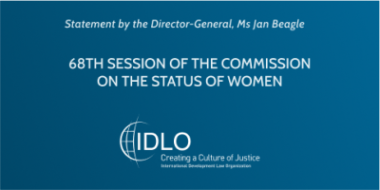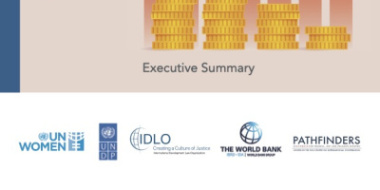Q&A on Somalia with Adam-Shirwa Jama
IDLO’s Country Director for Somalia Adam-Shirwa Jama, responds to IDLO LinkedIn group members' questions:
Many thanks to the members for your interest in IDLO’s work in Somalia. Apologies if we didn’t manage to answer all your questions, we’ll arrange another session in the near future.















